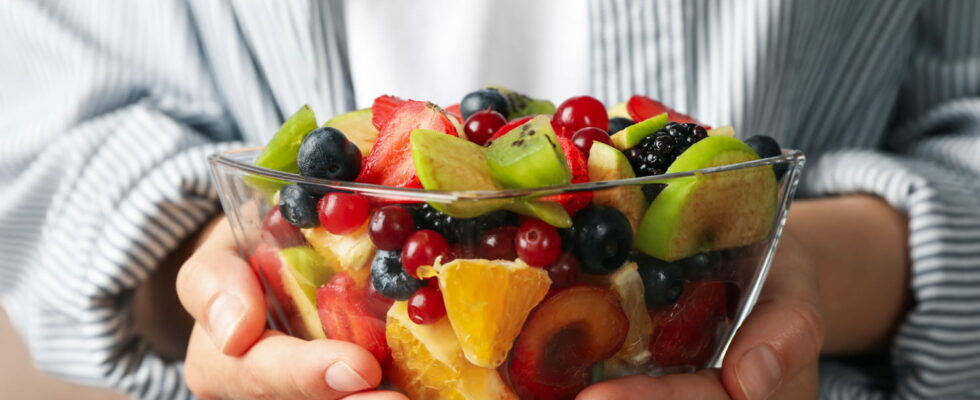Winter ends, and with it the end of the citrus season. But a fruit full of vitamin C is present in March and you should not deprive yourself of it.
If sunny days are slowly, March is often marked by fatigue. Because we get out of winter, that we lacked sun and also because it is the month of going to summer time, the one where we lose an hour of sleep. It is therefore the right time to continue to fill up with vitamin C but not the one where we find a lot of seasonal fruit in our stalls. One stands out anyway …
Formerly called “Groseille de China”, this fruit with tangy taste is one of the main sources of vitamin C. “We are still in the middle of season because his harvest is between November and May-June, Sophie Pihan said, naturopath. And we find it everywhere! ” It is also a fruit “Rich in fibers, in healthy sugars and little caloric” without forgetting that “It is the ally of good digestion, in particular of the digestion of proteins, thanks to its richness in enzymes. It is one of the only fruits that we can also consume at the end of the meal”. As our naturopath explains, the fruits digest quickly, but if they are consumed for dessert, they stay for too long in the stomach and end up fermenting. The nutrients of the fermented fruit are less well assimilated by the digestive system. In case of digestive disorders, even minors, fermentation can exacerbate the symptoms. This is why the fruits are to be consumed rather at breakfast or in the afternoon, between 3:00 p.m. and 5:00 p.m.
Have you guessed the famous fruit rich in vitamin C which should not be done in March? This is Kiwi. Kiwi is an excellent source of vitamin C, whose role is notably to support the immune system: count 81.9 mg of vitamin C for a kiwi on average (100 g). Vitamin C and antioxidants act against cell aging and allow the body to defend itself against generated toxic molecules, for example, by smoking, pollution and stress. Vitamin C also has an effect on collagen production, fibers involved in skin hydration.
To choose the right kiwi, favor short circuits, with fruits harvested as close as possible from you. “From the moment they are harvested, the fruits are already losing their nutrient content. The longer the journey, the more the kiwi loses its properties. Choose it preferably, more or less mature according to your tastes.” If you do not like kiwi, nature conceals other sources of vitamin C, available throughout the year such as acerola, cranberries, dried goji berries, romance (riding) (in infusion), parsley (fresh, frozen or powder), nettle, thyme and essential lemon, “Ceets that we meet almost all year round.”
Thanks to Sophie Pihan, naturopath and member of the FENA.
